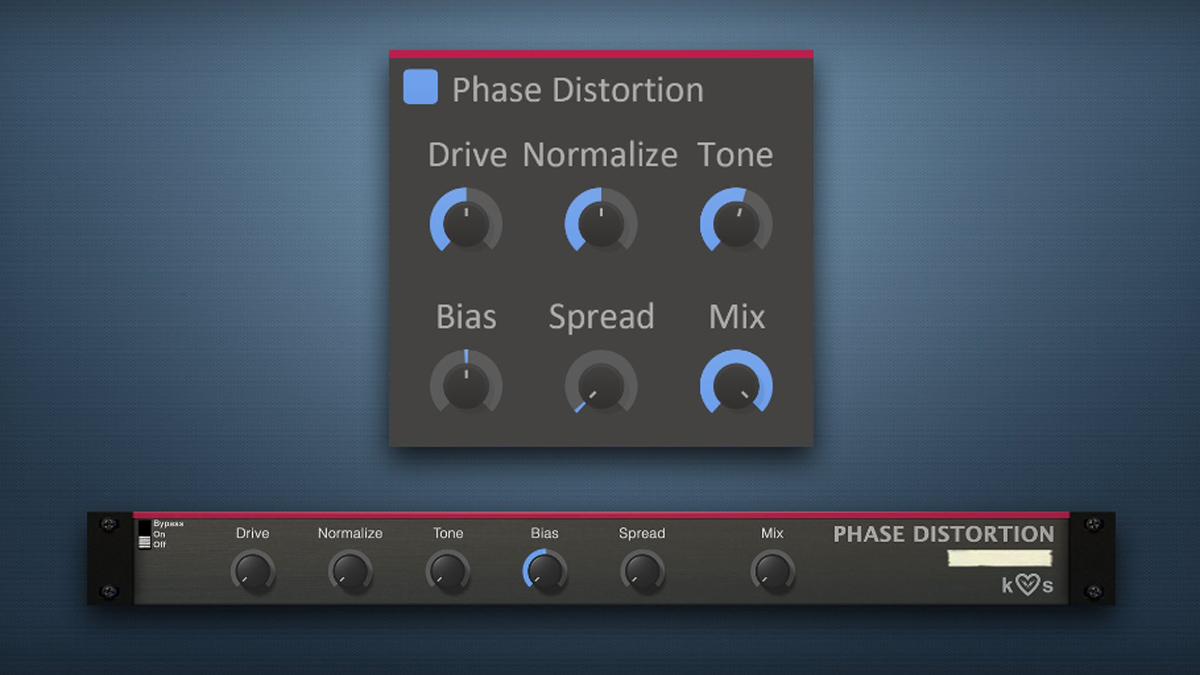Kilohearts’ Phase Distortion plugin takes a different approach to saturation and overdrive
Add some FM-style colour to your sounds

Want all the hottest music and gear news, reviews, deals, features and more, direct to your inbox? Sign up here.
You are now subscribed
Your newsletter sign-up was successful
Kilohearts’ new Phase Distortion offers you an alternative to conventional overdrive and saturation plugins, taking a different kind of approach to processing of this sort.
Rather than using waveform clipping and amplitude shaping, it modulates the phase of the input signal with its own amplitude, creating an effect that’s not dissimilar to feedback frequency modulation.
This may sound complex, but Phase Distortion’s interface is anything but, being designed to deliver a quick and efficient workflow. The amount of distortion is set using the Drive knob; Normalize and Tone controls adjust the amplitude and frequency response; Bias and Spread offset the phase difference and widen the stereo image; and Mix controls the balance between wet and dry signals.
Phase Distortion is designed to do its characterful business on all kinds of material - from synths and percussion to bass and drums - and can be purchased now for $39/€39 via the Kilohearts website. It’s available for PC and Mac in VST/AU/AAX formats and can also demoed for 30 days.
As well as operating as a plugin, Phase Distortion can also be used as part of Kilohearts’ Snapin virtual effects rack.
Want all the hottest music and gear news, reviews, deals, features and more, direct to your inbox? Sign up here.



I’m the Deputy Editor of MusicRadar, having worked on the site since its launch in 2007. I previously spent eight years working on our sister magazine, Computer Music. I’ve been playing the piano, gigging in bands and failing to finish tracks at home for more than 30 years, 24 of which I’ve also spent writing about music and the ever-changing technology used to make it.